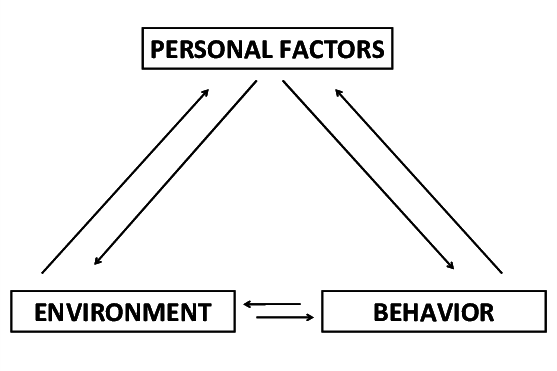Albert Bandura’s believes that a person’s behavior is both influenced by and is influencing a person’s personal factors and the environment. Bandura accepts the possibility of an individual’s behavior being conditioned through the use of consequences. At the same time he recognizes that a person’s behavior can impact the environment. The same is true of the relationship between personal factors such as cognitive skills or attitudes and behavior or the environment. Each can impact and be impacted by the other.”
An example of Bandura’s reciprocal determinism is when a child is acting out in school. The child doesn’t like going to school therefore he/she acts out in class. This results in teachers and administrators of the school to dislike having the child around. When confronted by the situation, the child admits he/she hates school and other peers don’t like him/her. This results in the child acting inappropriately, forcing the administrators who dislike having him/her around, to create a more restrictive environment for children of this stature. Each behavioral and environmental factor coincides with the child and so forth resulting in a continuous battle on all three levels.
The article goes on to prove that how Genes influence behavior. Environment influences behavior. Behavior influences the environment. and Environment, after awhile will encode certain features in genes, passing on specific personality differences.
Now if we agree on this philosophy then there isn’t a free will most of the time because most of all events (except gambling) are inevitable consequences of antecedent sufficient causes. Because our thoughts, feelings, and behaviors are influenced by the actual, imagined, or implied presence of others and factors like our behavioral genetics. So, when we say “this was solely my decision” or “this is my independent & original thinking”, is that really the case? Most of all, the article proves that we have all the power to change the environment.

